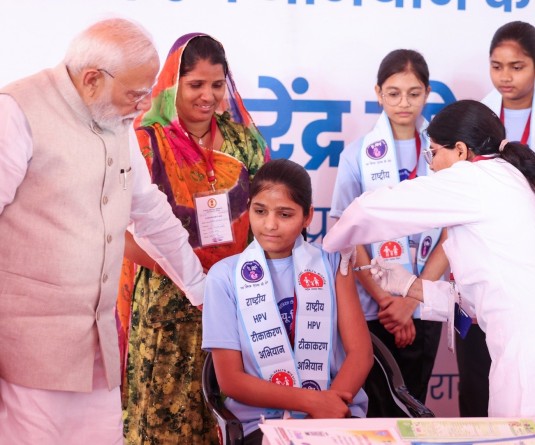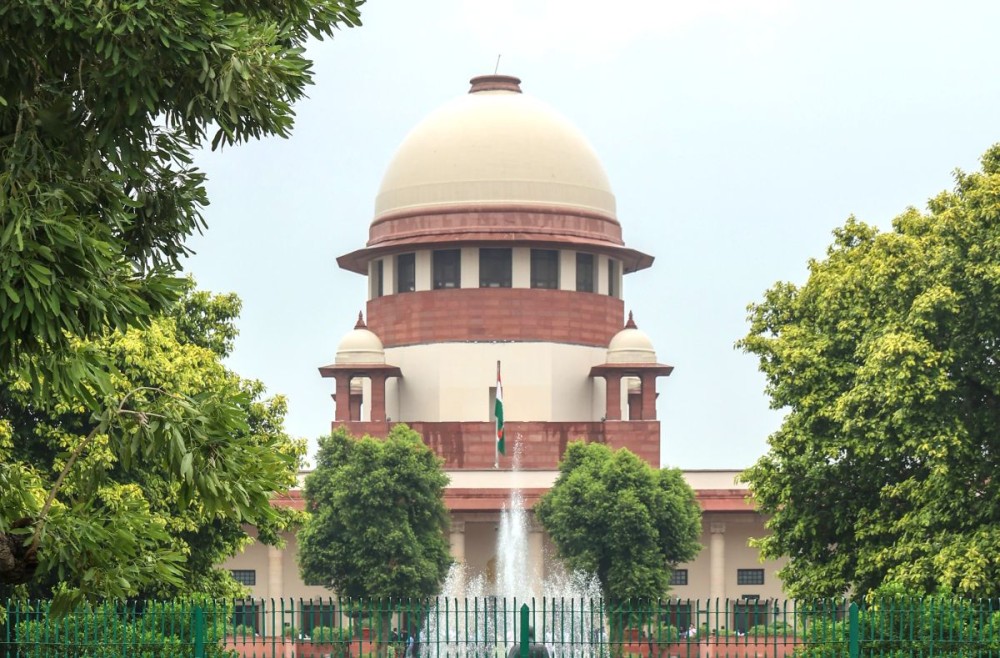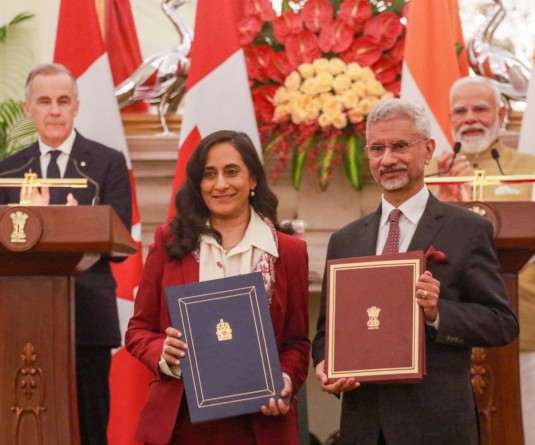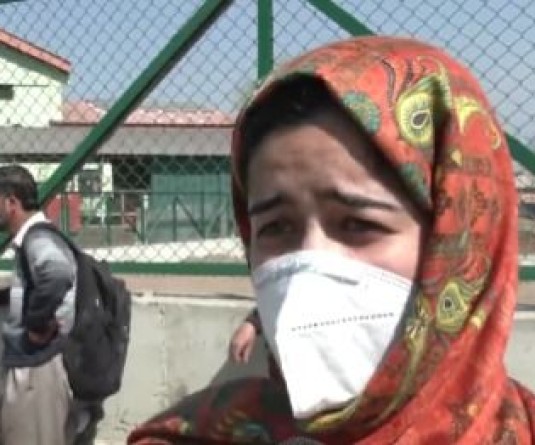
NEW Delhi, may 11 (Agencies): The Supreme Court turned down on Wednesday a government demand to re-open the case into the 1984 Bhopal gas tragedy and hand harsher sentences to seven men convicted of negligence. The court dismissed CBI’s curative petition seeking restoration of stringent charges against Bhopal tragedy accused saying it was filed 14 years after the 1996 judgment, which was only a prima facie view of evidence that had come on record till that time. A five-judge constitutional bench, headed by Chief Justice S H Kapadia, however, left a window of opportunity open saying the pending proceedings before the sessions court against the Chief Judicial Magistrate’s judgement awarding two years sentence to the accused, including Union Carbide India Chairman Keshub Mahindra will not be influenced by any order passed by it, PTI reported. The unanimous order was passed by the bench that included justices Altamas Kabir, R V Raveendran, B Sudershan Reddy and Aftab Alam. The CBI and the Madhya Pradesh government filed the curative petitions after a public outcry over what was considered as a mild punishment for a tragedy that claimed over 15,000 lives in December 1984 and had left several thousands maimed by the leakage of deadly Methyl Isocyanate gas.
In 1996, a two-judge bench of the apex court, headed by the then Chief Justice A H Ahmadi had diluted the charges against the accused from Section 304 Part II of the IPC providing for a maximum of ten years imprisonment to Section 304(A) that deals with rash and negligence act with a maximum punishment of two years. The CBI and the MP government have filed revision petitions in the sessions court against the judgement of the CJM, Bhopal, which had awarded two years jail term to various accused in the Bhopal gas tragedy case. Last month, the apex court had questioned the CBI for approaching it 16 years after it had diluted in the charge of culpable homicide not amounting to murder against the accused in the Bhopal gas tragedy case. Then, a five-judge special bench headed by Chief Justice S H Kapadia had raised the question on delay and asked the CBI as to why it had not filed the review petition during all these years.
Attorney General G E Vahanvati, appearing for the CBI, said: “I don’’t know why it was not filed by the CBI but a review petition was filed in the case by someone else and it was dismissed.” He said there was a series of illegal omissions on the part of the accused from 1982 onward which led to that disaster. He further said there was serious security default besides a default in the design in the plant which led to the disaster. The bench was then hearing a petition filed by the CBI seeking to recall the apex court’’s 14-year-old judgement that had diluted the charges against the accused who were prosecuted just for the offence of being negligent. The CBI petition sought restoration of the stringent charge of culpable homicide not amounting to murder instead of death caused due to negligence against the accused.
The Supreme Court had on August 31 last year reopened the Bhopal gas leak case and issued notices to all the accused on the basis of a petition filed by the CBI seeking to restore against them the stringent charge of culpable homicide, which attracts a maximum punishment of ten years jail term. In in-chamber proceedings, a bench comprising Chief Justice S H Kapadia and Justices Altamas Kabir and R V Raveendran sought response from the accused on the curative petition filed by the CBI, which wanted a reconsideration of the 1996 judgement, which diluted charges against former Union Carbide India Chairman Keshub Mahindra and six others. In the early hours of December 3, 1984, around 40 metric tonnes of toxic methyl isocyanate (MIC) gas leaked into the atmosphere and was carried by the wind to the surrounding slums. The government says around 3,500 died because of the disaster. Activists however calculate that 25,000 people died in the immediate aftermath and the years that followed.
In 1996, a two-judge bench of the apex court, headed by the then Chief Justice A H Ahmadi had diluted the charges against the accused from Section 304 Part II of the IPC providing for a maximum of ten years imprisonment to Section 304(A) that deals with rash and negligence act with a maximum punishment of two years. The CBI and the MP government have filed revision petitions in the sessions court against the judgement of the CJM, Bhopal, which had awarded two years jail term to various accused in the Bhopal gas tragedy case. Last month, the apex court had questioned the CBI for approaching it 16 years after it had diluted in the charge of culpable homicide not amounting to murder against the accused in the Bhopal gas tragedy case. Then, a five-judge special bench headed by Chief Justice S H Kapadia had raised the question on delay and asked the CBI as to why it had not filed the review petition during all these years.
Attorney General G E Vahanvati, appearing for the CBI, said: “I don’’t know why it was not filed by the CBI but a review petition was filed in the case by someone else and it was dismissed.” He said there was a series of illegal omissions on the part of the accused from 1982 onward which led to that disaster. He further said there was serious security default besides a default in the design in the plant which led to the disaster. The bench was then hearing a petition filed by the CBI seeking to recall the apex court’’s 14-year-old judgement that had diluted the charges against the accused who were prosecuted just for the offence of being negligent. The CBI petition sought restoration of the stringent charge of culpable homicide not amounting to murder instead of death caused due to negligence against the accused.
The Supreme Court had on August 31 last year reopened the Bhopal gas leak case and issued notices to all the accused on the basis of a petition filed by the CBI seeking to restore against them the stringent charge of culpable homicide, which attracts a maximum punishment of ten years jail term. In in-chamber proceedings, a bench comprising Chief Justice S H Kapadia and Justices Altamas Kabir and R V Raveendran sought response from the accused on the curative petition filed by the CBI, which wanted a reconsideration of the 1996 judgement, which diluted charges against former Union Carbide India Chairman Keshub Mahindra and six others. In the early hours of December 3, 1984, around 40 metric tonnes of toxic methyl isocyanate (MIC) gas leaked into the atmosphere and was carried by the wind to the surrounding slums. The government says around 3,500 died because of the disaster. Activists however calculate that 25,000 people died in the immediate aftermath and the years that followed.
May 11 another black day, say Bhopal activists
NEW Delhi, may 11 (PTI): Social activists fighting for enhanced punishment to the accused in the Bhopal gas disaster today expressed dismay over the Supreme Court’s order dismissing the CBI’s curative petition and called it “another black day”. “Supreme Court today has heaped yet more injustice on victims who have already suffered it earlier -- in 1989 on settlement (for compensation) and in 1996 after dilution of penal charges against the accused. May 11 is another black day in the history of Bhopal,” social activist Satinath Sarangi told reporters soon after the apex court delivered its verdict.
Sarangi alleged that the state organs, including judiciary, were not keen on justice to Bhopal gas victims. “Why should people suffer because the CBI has not done its job well? The government machinery is not inclined to give justice to victims and this includes judiciary. It (court) could have seen that 1996 judgement equated the corporate massacre with a meagre traffic accident.” “The message you are sending out to world is that you can come here, kill us and go back,” he added. A five-judge constitutional bench, headed by Chief Justice S H Kapadia today dismissed a curative petition filed by the CBI, seeking recall of the apex court’s September 1996 order which had diluted the stringent charges of culpable homicide not amounting to murder against the Bhopal gas leakage tragedy accused and had ordered their trial for milder offence of causing death by rash and negligent acts.
Additional Solicitor General Indira Jai Singh, however, saw a silver lining in the apex court’s verdict and said, “The judgement very categorically says that Sessions Court in revision case pending, can go ahead and frame charges under section 304-II (culpable homicide not amounting to murder or the unintentional killing) on the basis of the new evidence that has surfaced now. In that sense, it is positive.” Bhopal gas activist Sarangi, however, expressed dismay and anguish that the 1996 judgement was not set aside. Activist Madhumita Das also lamented that “people have to suffer for mistakes committed by the governments”. “I am shocked. After so many years there was hope for Bhopal victims. For the mistakes of the government and the CBI, the victims have to suffer again,” she rued. Another activist Rachna Dhingra said, “At the end of the day, the victims have to pay for CBI’s unwillingness and incompetence. As the next step we will seek to have day-to-day hearing of the case in the Sessions Court and seek trial on graver charges in light of the new evidence.”
Sarangi alleged that the state organs, including judiciary, were not keen on justice to Bhopal gas victims. “Why should people suffer because the CBI has not done its job well? The government machinery is not inclined to give justice to victims and this includes judiciary. It (court) could have seen that 1996 judgement equated the corporate massacre with a meagre traffic accident.” “The message you are sending out to world is that you can come here, kill us and go back,” he added. A five-judge constitutional bench, headed by Chief Justice S H Kapadia today dismissed a curative petition filed by the CBI, seeking recall of the apex court’s September 1996 order which had diluted the stringent charges of culpable homicide not amounting to murder against the Bhopal gas leakage tragedy accused and had ordered their trial for milder offence of causing death by rash and negligent acts.
Additional Solicitor General Indira Jai Singh, however, saw a silver lining in the apex court’s verdict and said, “The judgement very categorically says that Sessions Court in revision case pending, can go ahead and frame charges under section 304-II (culpable homicide not amounting to murder or the unintentional killing) on the basis of the new evidence that has surfaced now. In that sense, it is positive.” Bhopal gas activist Sarangi, however, expressed dismay and anguish that the 1996 judgement was not set aside. Activist Madhumita Das also lamented that “people have to suffer for mistakes committed by the governments”. “I am shocked. After so many years there was hope for Bhopal victims. For the mistakes of the government and the CBI, the victims have to suffer again,” she rued. Another activist Rachna Dhingra said, “At the end of the day, the victims have to pay for CBI’s unwillingness and incompetence. As the next step we will seek to have day-to-day hearing of the case in the Sessions Court and seek trial on graver charges in light of the new evidence.”






